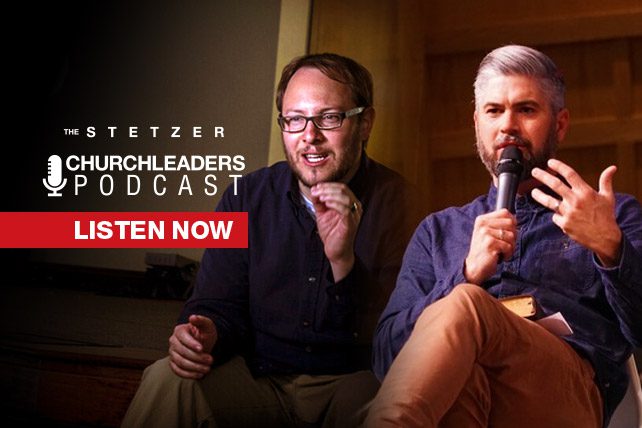Dr. Kyle Strobel is a teacher, writer and preacher. He’s the associate professor of spiritual theology and formation at Talbot School of Theology at Biola.
Dr. Jamin Goggin is a professor at Biola University, pastor at Mission Hills Church, and director of the Center for Christian Formation.
Kyle and Jamin have collaborated on several books, including “The Way of the Dragon or the Way of the Lamb: Searching for Jesus’ Path of Power in a Church That Has Abandoned It.”
Other Ways To Listen to This Podcast With Kyle Strobel and Jamin Goggin
► Listen on Amazon
► Listen on Apple
► Listen on Google
► Listen on Spotify
► Listen on YouTube
“The Stetzer ChurchLeaders Podcast” is part of the ChurchLeaders Podcast Network.
Key Questions for Kyle Strobel and Jamin Goggin
-Where does the title of “The Way of the Dragon or the Way of the Lamb” come from, and what originally led you to write the book?
-Is there something about the culture of evangelicalism that is antithetical to the way that Scripture talks about power?
-What’s “demonic” and what’s not when we’re talking about church life?
-Is there any justification for using practical tools or metrics when running a church?
Key Quotes From Kyle Strobel
“Jamin and I went to seminary together, and it was here studying New Testament, actually, at Talbot, that we realized, wow, you know, we came to seminary to be great. Like, we wanted to be awesome. We wanted to win in the ministry thing. And we kept on running into Jesus saying things like, ‘The first shall be last, and the last shall be first.’”
“I grew up in not only a church, but several churches, in my young adult life that all had what we now call ‘toxic leaders’ running them. And so I saw behind the scenes of what toxic leaders do.”
“Your view of power determines what you do and what you give yourself to. This is not a question that some people have to think of. This is a question we all have to wrestle with.”
“Evangelicalism has always had a grand vision of the world for the sake of Jesus. Like, how can we rescue the world? And so the temptation among evangelicals tends to be to become worldly in very subtle ways as we try to meet the world on their own terms.”
“What Jamin and I discovered—which, when we started this project, we weren’t willing to say this quite yet—but we were forced into this by Scripture…was that we were trying to wield demonic methods for the sake of the kingdom.”
“In most cases, it appears and even seems this way in church history that God actually does call us in places where we have a lot of natural gifts and abilities. And in those circumstances, our weakness is actually relying upon those instead of the Spirit.”
Continue reading on the next page


